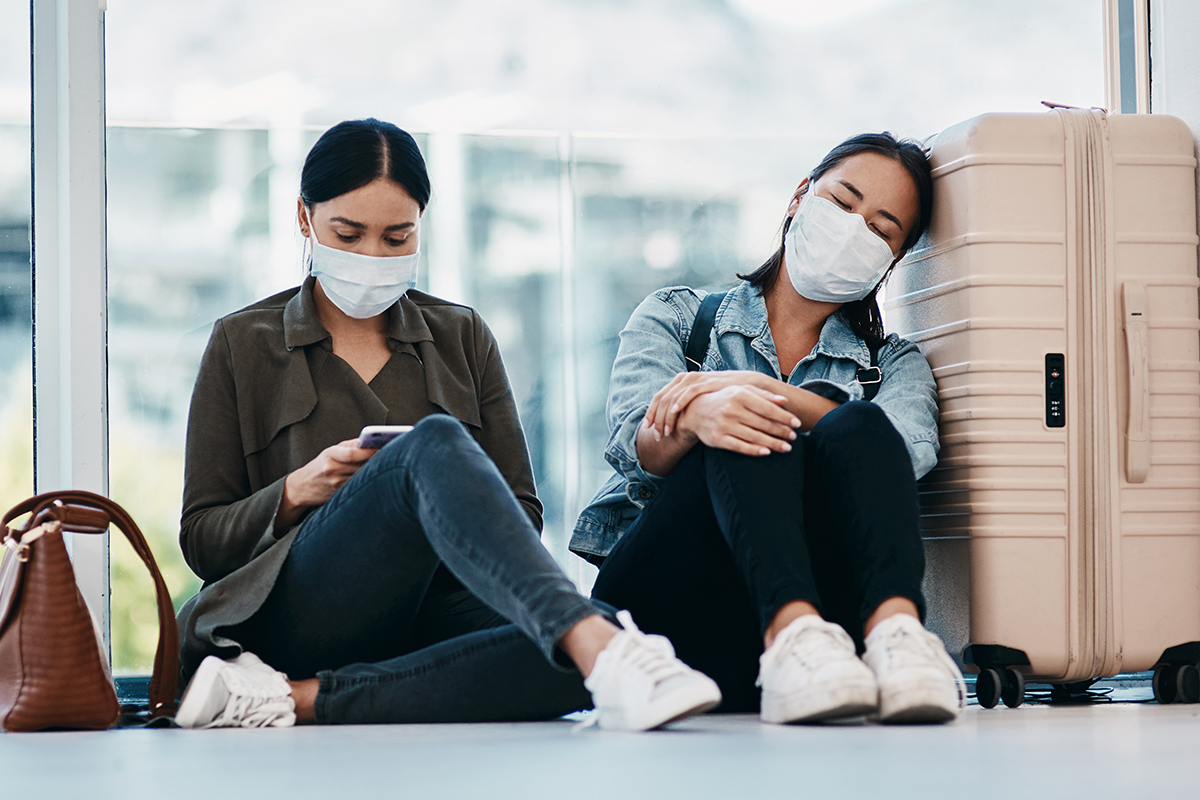
- 21 Feb 2024
- News
Know Why Jet Lag Happens & Beat It With 6 Airtight Tactics
Know Why Jet Lag Happens and Beat It With 6 Airtight Tactics
With the resumption of air travel in 2022, we Singaporeans have returned to our favourite hobby—travelling. Whether to beloved destinations like Japan, South Korea, and Thailand, or even places as far as the U.S. and Europe, one problem often arises: jet lag.
Jet lag is a common issue that plagues many travellers, with symptoms like fatigue, headaches, difficulty sleeping, and general malaise. Naturally, no one wants to experience these.
In this article, we explore easy yet powerful tactics to beat jet lag. But before we dive into solutions, let’s first understand what jet lag really is and what causes it.
What is Jet Lag and How Does It Happen?
To understand jet lag, we must first understand our body’s internal clock—known as the circadian rhythm—which regulates sleep and wake cycles. The brain uses light and darkness to keep this rhythm on track. This is why curtains, sunlight, and the absence of light play critical roles in affecting how we sleep.
However, when we travel across different time zones, our internal clock gets thrown off balance. This is because our brains need time to adjust to the new patterns of light and darkness in the new time zone, which can take a while.
Imagine your usual routine back home in Singapore: you wake up at 7 a.m., get dressed, have breakfast, and start work at 9 a.m. Your body is used to this routine and expects to wake up around 7 a.m. every day.
Now, let’s say you travel to New York, which is in a completely different time zone. When you arrive in New York, it’s 7 p.m. there, but it’s 7 a.m. back in Singapore. Your body is confused because it thinks it’s morning (based on your usual Singapore routine) when it’s actually nighttime in New York.
The result? The highly undesirable jet lag.
Travel Fatigue, Post-Holiday Exhaustion—Are They All the Same?
Terms like jet lag, travel fatigue, and post-holiday exhaustion are often thrown around interchangeably when discussing travel woes. While related, they are not the same thing.
Travel fatigue and post-holiday exhaustion are similar to jet lag in that they can leave you feeling tired and run-down. Travel fatigue can happen after a long journey, even if you don’t cross any time zones. Post-holiday exhaustion can occur when you return from a trip, and your body needs time to readjust to your normal routine. These conditions may arise from factors like physical exertion, stress, and lack of sleep.
While these conditions share some symptoms with jet lag, the causes and treatments may differ. Specifically, jet lag is caused by traveling across time zones.
6 Tactics to Alleviate Jet Lag and Travel Fatigue

Jet lag can disrupt your sleep schedule, make you groggy, and even affect your mood. If you’re a frequent traveller, you know how disruptive jet lag and travel fatigue can be. Even if you haven’t experienced it before, these tactics can help you avoid it altogether.
1. Boost Your Energy With Energy Shots

2. Get Active With Exercise
Exercise is a great way to boost your energy, improve your mood, and alleviate stress. Even a short walk or jog can help you feel more awake and alert, mitigating jet lag symptoms. Try to fit in some physical activity each day, especially when you first arrive in your destination country. Whether it’s a workout at the hotel gym or a brisk walk around town, taking the opportunity to explore more of your destination on foot can help. Exercise is a great way to boost your energy, improve your mood, and alleviate stress. Even a short walk or jog can help you feel more awake and alert, alleviating the jet lag symptoms. Try to fit in some physical activity each day, especially when you first land, whether it’s a workout at the hotel gym or a brisk walk around town. Take the chance to explore more of your destination on foot!
3. Strategise Your Exposure to Light
Exposure to light is a key factor in regulating your sleep and wake cycles. Try to get as much natural light as possible during the day and avoid bright lights at night (This includes your beloved mobile devices, so be sure to put them away!). If you’re traveling to a new time zone, you can gradually adjust your sleep schedule by exposing yourself to light at appropriate times. As a guide: if you’re flying eastward, expose yourself to light in the morning; if flying westward, expose yourself to light in the evening.
4. Pace Your Meals
You’ve likely experienced sluggishness or a “food coma” after a heavy meal, even back home in Singapore. The effect can be worse when traveling across time zones. Large meals make your body work harder to digest food, leaving you tired and potentially disrupting your sleep. Instead of heavy meals, pace your eating throughout the day with small, frequent meals high in protein and fibre. Avoid sugary or fatty foods that can cause energy crashes later on, and try to eat at least a few hours before going to bed.
5. Stay Hydrated With Plenty of Water

Dehydration is a common cause of fatigue and low energy levels. It’s essential to drink plenty of water throughout the day, especially when traveling by air, where the dry air can lead to dehydration. Keep a water bottle with you at all times and take regular sips to stay hydrated. Avoid alcohol and caffeine, which can dehydrate you and disrupt your sleep. If plain water isn’t appealing, try adding fruit slices or herbal tea bags for a refreshing twist.
6. Time Your Sleep Schedule
Jet lag can wreak havoc on your sleep schedule, leaving you exhausted and disoriented. The best way to combat jet lag is to gradually adjust your sleep schedule to the new time zone. If you’re traveling eastward, try going to bed an hour earlier each night leading up to your trip. If you’re traveling westward, stay up an hour later each night. Once you arrive at your destination, stick to a regular sleep schedule to help your body adjust.
Enjoy Your Holiday the Way It Should Be—Without Jet Lag or Travel Exhaustion
With these 6 tactics, you can alleviate jet lag symptoms and enjoy your holiday to the fullest. Whether you’re traveling for business or pleasure, these tips can help you stay energised and alert, making the most of your time away. These strategies can work well for any travel, not just those across vastly different time zones. So pack your bags and get ready to beat jet lag and travel fatigue with these airtight tactics!

